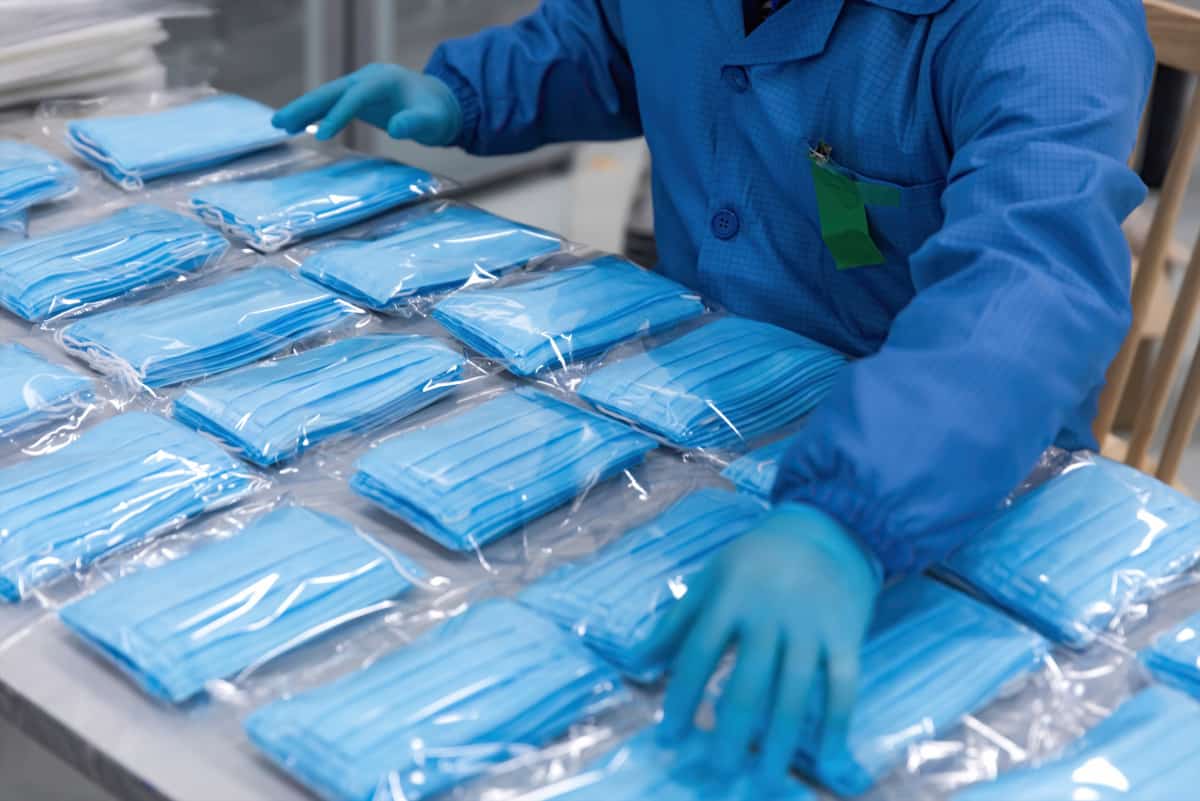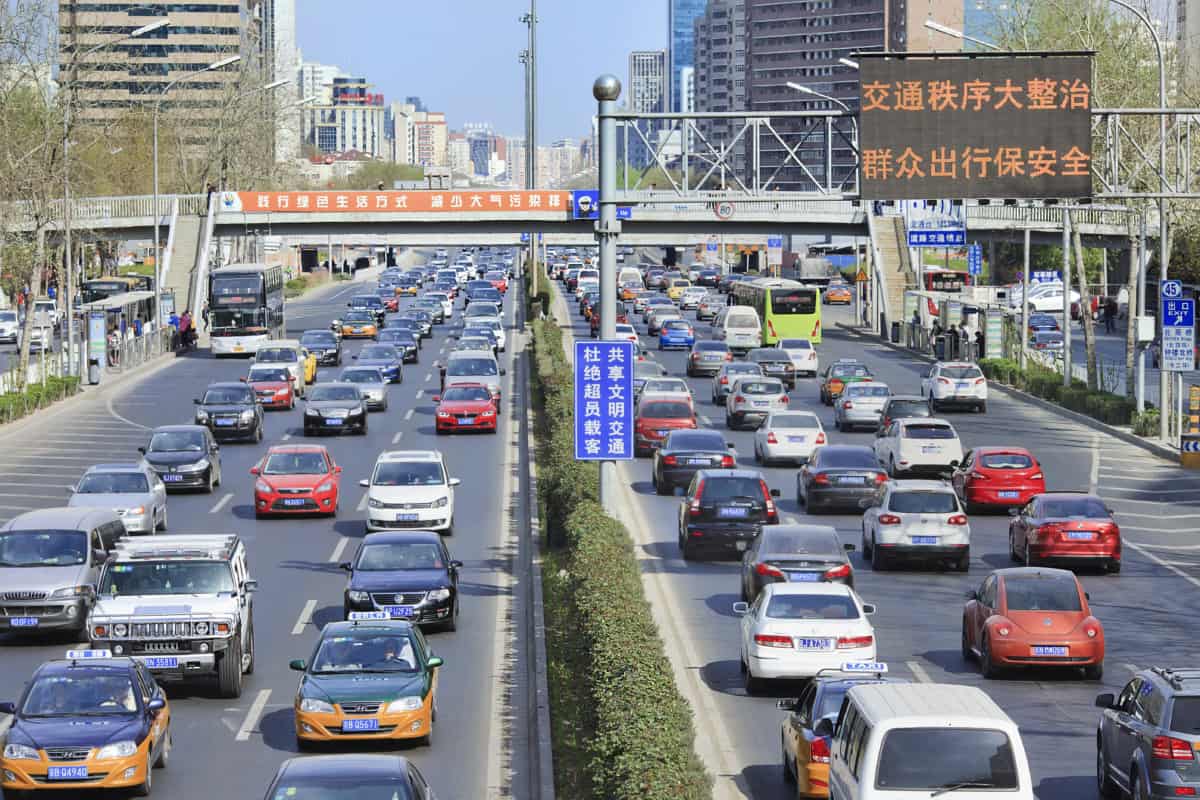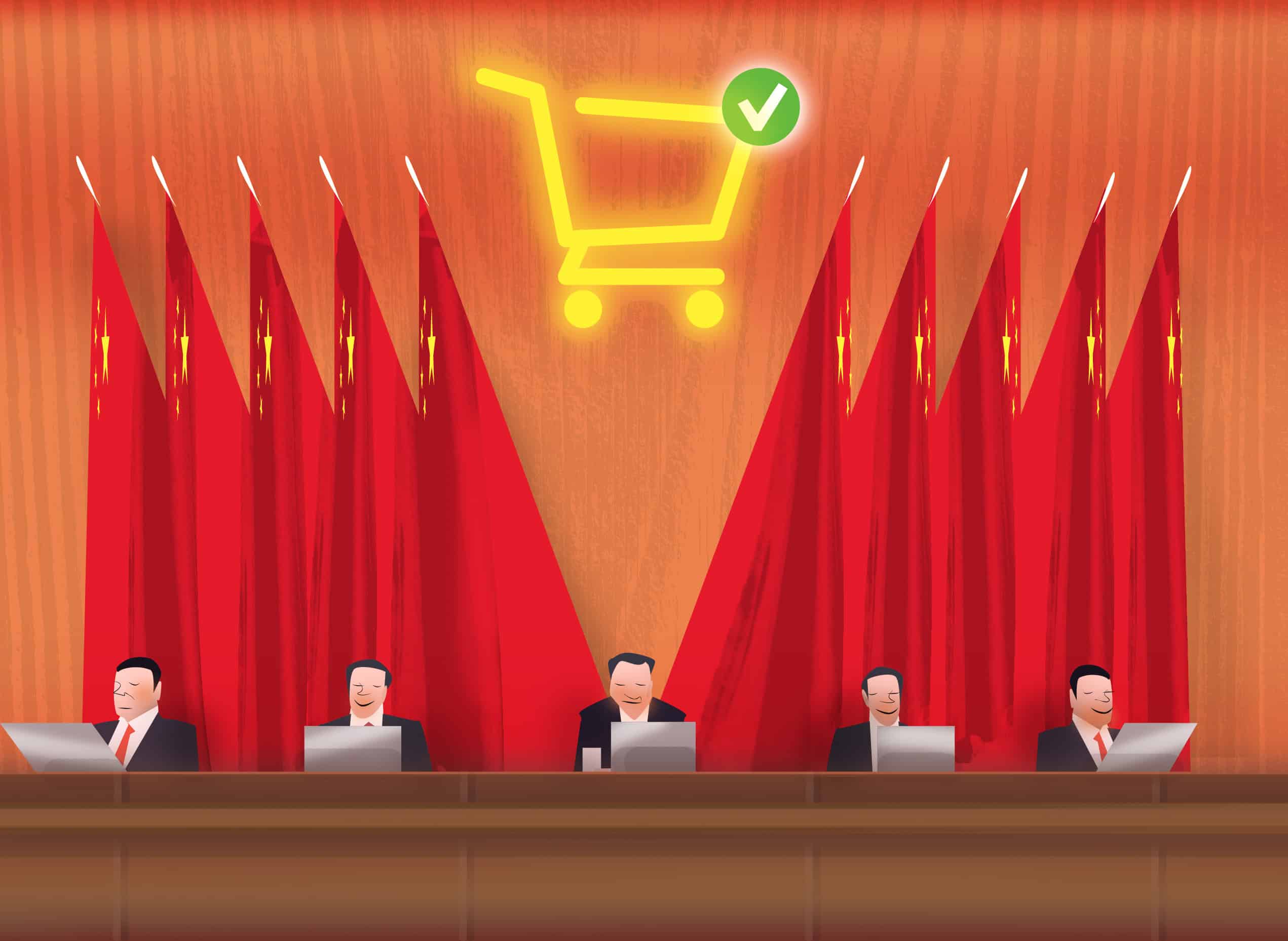- 67% of respondents to a survey of American businesses in China said they expect the coronavirus pandemic to stall their industry’s 2020 market growth, up from 58% last month. — The American Chamber of Commerce in China
- J.P. Morgan Asset Management has regained the lead as the top-performing fund house in China. No. 2, UBS; No. 3, Invesco; No. 4, Schroders; and No. 5, BlackRock. — Z-Ben Advisors
- China’s central bank said the country is likely to be the first to reach 96% home ownership in its urban areas. The average wealth of urban households is 3.18 million Renminbi, or $449,200, with a median value of about half of that. — Yicai Global
- From 2014 to 2017, net Chinese investment in India rose to at least $8 billion from $1.6 billion, according to official figures. — The Brookings Institution

Credit: InkheartX, Shutterstock
Quote of the Week
The quality was atrocious. They were priced well below the market rate, which aroused our suspicion, so we tested them in our lab and found that they did not have the layer of melt-blown fabric required to keep the droplets out. This explains to me why so many people are getting sick.
A Shanghai sourcing specialist on the quality of shipments of masks bound for Europe.
A Storm Over China’s Mask and Gown Exports
China’s already manic medical equipment market is in chaos, the South China Morning Post reported. Raw material shortages have sent prices soaring. In one case, the price per medical gown rose from 80 U.S. cents to more than $3 in just a few weeks.
One reason for the disarray: Manufacturers in March ran through the stockpiles of chemicals and petrochemicals needed to make the fabrics.
Another possible reason: Some believe that Beijing is trying to calm an overheated market that fueled a series of public relations fiascos overseas. The market is being infiltrated by con-artists and fly-by-night scalpers with fake certificates and export licenses. Some countries have complained about receiving low quality or defective goods.
Another Week, Another Scandal
As if China needed another accounting brouhaha.
Beijing Jingxi Culture and Tourism, the producer of the wildly successful action flick “Wolf Warrior 2,” was put on the defensive last week. A former vice-chairman, Lou Xiaoxi, accused the company’s Chairman, Song Ge, and the director, Zhang Yunlong, of inflating earnings in 2018 and misappropriating funds in 2016 to cover losses at another unit of the company.
The filmmaker, which is listed on the Shenzhen Stock Exchange, dismissed the allegations, saying Lou himself had fled the country after being investigated by the Beijing police in January for embezzling funds.
Chinese companies at home and abroad are being watched closely after high-profile revelations of financial misconduct in recent months. After admitting to fabricated sales, Nasdaq-listed Luckin Coffee is now under investigated by Chinese regulators and the U.S. Securities and Exchange Commission.

Credit: celinahoran, Creative Commons
Pockets Are Empty
The New York Times headline captured the economic moment perfectly: “China’s Factories Are Back. Consumers Aren’t.”
China’s factories, brought to a standstill after the coronavirus outbreak arrived, are humming once again. But in a possible warning to other countries hoping to restart their economies soon, consumers — having lost their jobs or seen their pay cut and their savings depleted — aren’t spending. Saving is the order of the day.
Chloe Cao, a Beijing translator of French stage dramas, exemplified the new thinking by detailing shifts in her personal budget:
Pre-pandemic: $200 a month in restaurants; $70 a month in coffee shops and as much as $170 for a tube of imported face cream.
Now: Unemployed, she cooks for herself, brews her own coffee and uses a $28 Chinese brand face cream.
Stocking Up on Oil and Looking for Places to Put It
Taking advantage of historically low oil prices, Chinese importers have been loading up on purchases of crude oil.
According to the National Bureau of Statistics, over the first two months of the year China’s imports of crude oil increased more than 5 percent compared with the same period in 2019. The price of Brent Crude, the international benchmark, fell about 25 percent between December and February, and then plummeted another 60 percent in March.
But where to put all that crude? Storage is a problem. “Taking advantage of the plunge in oil prices to increase crude reserves sounds very appealing, but the actual situation doesn’t allow us to buy and store as much as we want,” said Li Li, an energy analyst at ICIS in Guangzhou.
Traffic Congestion Is Back
Commuters are sitting in traffic again. And that’s a good sign for an economy trying to get off the mat.
Rush hour congestion in Beijing and Shenzhen at the end of April was heavier than during the same period last year, and in Shanghai it was almost as crowded, according to TomTom International B.V., which tracks traffic patterns around the world.
The crowded streets have been good news for the nation’s oil refiners, who kept run rates in April at pre-pandemic levels.
Taxis, buses and private cars have been running at normal levels in 31 regions and cities since April 4, according to China’s transportation ministry.

Credit: TonyV3112, Shutterstock
…And Other Positive Signs
- Chinese manufacturers of construction machinery have raised prices, a sign of reviving economic activity.
- China and South Korea plan to ease restrictions on business travel between the two countries.
- Demand is surging for plane tickets originating in Beijing.
- The liquor giant Kweichow Moutai Co.’s strong first quarter earnings indicates that China’s demand for expensive products is making a comeback.
Don’t Analyze This
It’s rare in mainland China for economists to critique the official jobs data, a topic of high political sensitivity to the Communist Party leadership.
But on April 24, analysts working at a Shandong-based brokerage firm did just that. They estimated that the Chinese unemployment rate was 20.5 percent. That was far above the official figure of 5.9 percent in March.
Three days later, the firm, Zhongtai Securities, retracted the report and it disappeared from social media.
“Zhongtai’s attitude is that we should go by the official figures for unemployment,” said one of the report’s authors, Zhang Chen.
An Assistance Program That Is No Help to Many
While experts like to focus on fiscal and monetary stimulus to boost employment and dig China out of its pandemic-caused economic hole, little attention has been paid to the flaws in the government’s main welfare program, reports SupChina.
Called the “dibao,” it is meant to provide a minimum guaranteed income to the country’s most vulnerable citizens. It is the largest assistance program in the world in the number of beneficiaries.
But studies have shown that the program has had a limited impact on poverty reduction. And they point to a range of problems in the program.
- Many eligible citizens don’t get support.
- Many recipients aren’t receiving their full cash entitlements.
- Local officials have also been found to dip into funds themselves or siphon off dibao money for “favorites” within the community.
- Recipients are often left stigmatized and isolated. Officials interview neighbors and co-workers to determine how deserving each applicant is. The applicants’ names are often printed and published on bulletin boards within the community.
Private Sector Coming Up Short
In China, some firms are more equal than others.
Private enterprises produce about two-thirds of China’s output. But even though the government says that all firms, whether state run or private, ought to be treated equally, Tianlei Huang and Nicholas R. Lardy of the Peterson Institute for International Economics point out:
- Revenue of state-controlled industrial enterprises declined 12.2 percent over last year; revenue at private ones declined 16.1 percent.
- In the first quarter of this year, value added of state controlled industrial enterprises dropped 6 percent from a year ago while their private counterparts saw a decline of 11.3 percent.
- In the first quarter, state-led fixed asset investments fell 12.8 percent; but fixed asset investment by nongovernmental domestic investors declined 19 percent.
Interesting Viewpoints
The Chinese economy needs more, not less, state control. — Michael Pettis, Financial Times
Why a postmortem is needed on the Bank of China oil crash. — Pete Sweeney, Reuters
Bad loans are a bad omen for China banks. — Anjani Trivedi, Bloomberg Opinion
Shutting down malicious social media content is a good thing. — Zhang Zhouxing, China Daily

Dave Smith covers international politics and business for The Wire’s Week in Review, and is the former editor of The New York Times Week in Review. @DaveSmithNY




